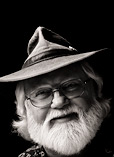
Peter Feinsinger
Natural history in Latin America
THEMES: Education, Society | WORKSHOP: Natural History & Education
Biography
Peter Feinsinger
Pete Feinsinger retired from the University of Florida in 1992 and since then has been affiliated with Wildlife Conservation Society (WCS) and Northern Arizona University. He lives in Salta, Argentina and works in education, local capacity building and training throughout Latin America. The short-term goal of Pete and his numerous collaborators is to empower local people to ask questions about the natural history of their surroundings and then to answer these questions through hands-on scientific inquiry. The long-term goal is local autonomy in conservation and management of landscapes. Specifically, Pete and collaborators work with elementary schoolteachers (schoolyard ecology), farming and indigenous communities (community inquiry), personnel of protected areas (park guard inquiry), environmental educators in protected areas and other “natural history venues” (trails of inquiry), and academic ecologists and conservation biologists, including graduate students and university professors (design of field studies in ecology conservation biology). The first phrase that participants in all courses and workshops learn to recite is: lo fundamental es la historia natural.Conversations:
Workshops:
Transcript
In the rural parts of Latin America, natural history was never lost and it's an automatic part of everything and it's very easy to integrate it into formal education. It's very easy to base an entire curriculum on natural history. Whereas it's very difficult to do that in this country, on average, unless you make a very conscious effort to do so.
In the academic circles in Latin America, depending on which country and which university you're talking about, natural history is just as disparaged as it is here in academic circles. But outside of the faculty, it's not any big deal. In fact, there are a tremendous number of books on local natural history available to kids. And many newspapers in Latin America have a supplement in the sunday issue that's about the frogs of northern Argentina, the snakes of Chile or the whatever of Cuba, for example. We don't see that here. In the Denver Post, or whatever, you're not going to find a sunday supplement that talks about the frogs of Colorado, for example.


